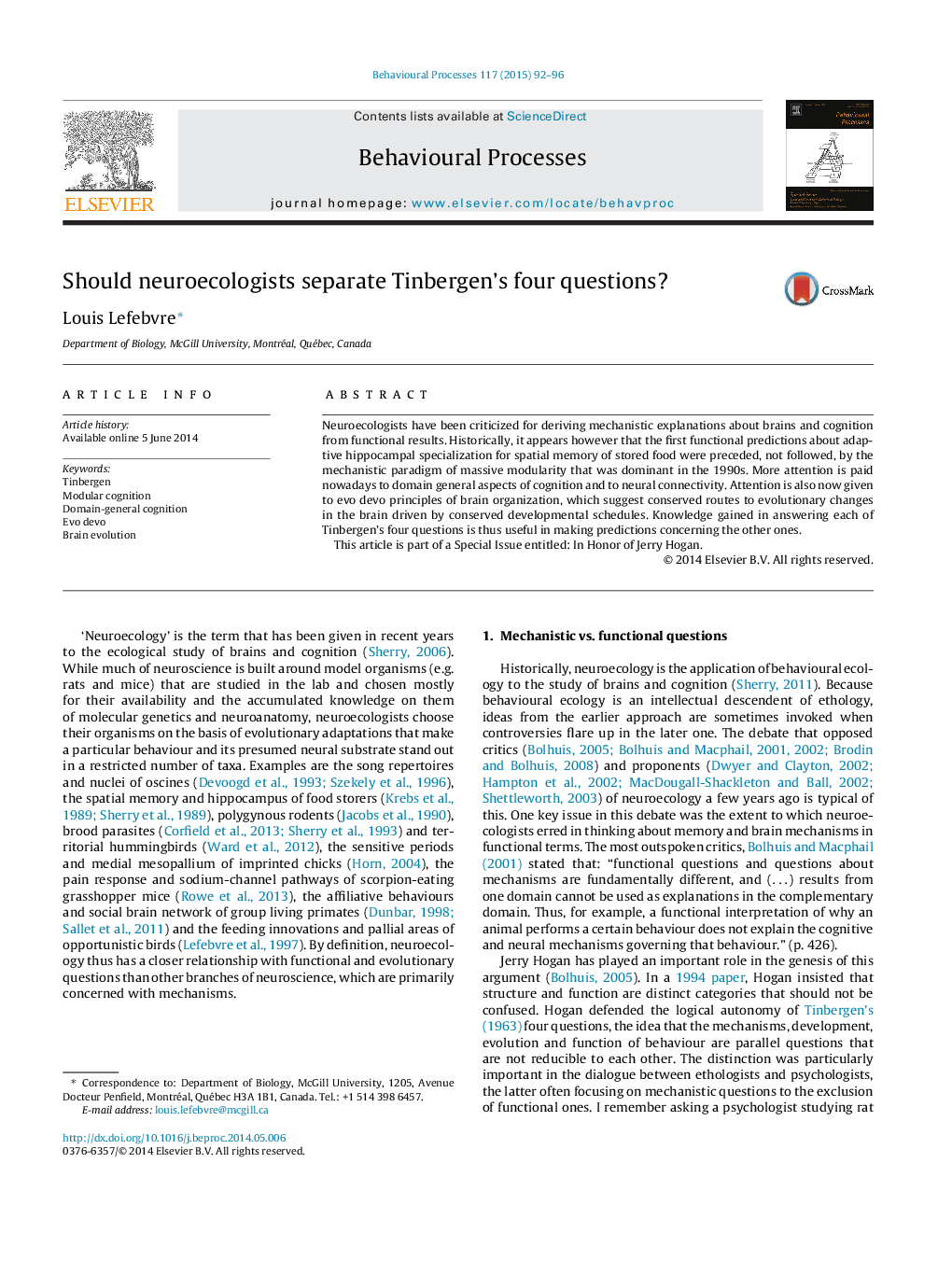| Article ID | Journal | Published Year | Pages | File Type |
|---|---|---|---|---|
| 2426559 | Behavioural Processes | 2015 | 5 Pages |
•Jerry Hogan has been an important defender of the autonomy of Tinbergen's four questions on mechanisms, development, function and evolution.•Bolhuis and MacPhail have suggested that neuroecologists erred in explaining mechanisms from functional principles, but historically, it seems to have been the reverse: early neurecologists derived their functional predictions from the modular views that were dominant in psychology at the time.•More attention is paid nowadays to neural connectivity and domain general aspects of cognition and less to modularity.•Attention is also now given to evo devo principles of brain organization, which suggest conserved routes to evolutionary changes in the brain driven by conserved developmental schedules.•Knowledge gained in answering each of Tibergen's four questions is useful in making predictions concerning the other ones.
Neuroecologists have been criticized for deriving mechanistic explanations about brains and cognition from functional results. Historically, it appears however that the first functional predictions about adaptive hippocampal specialization for spatial memory of stored food were preceded, not followed, by the mechanistic paradigm of massive modularity that was dominant in the 1990s. More attention is paid nowadays to domain general aspects of cognition and to neural connectivity. Attention is also now given to evo devo principles of brain organization, which suggest conserved routes to evolutionary changes in the brain driven by conserved developmental schedules. Knowledge gained in answering each of Tinbergen's four questions is thus useful in making predictions concerning the other ones.This article is part of a Special Issue entitled: In Honor of Jerry Hogan.
